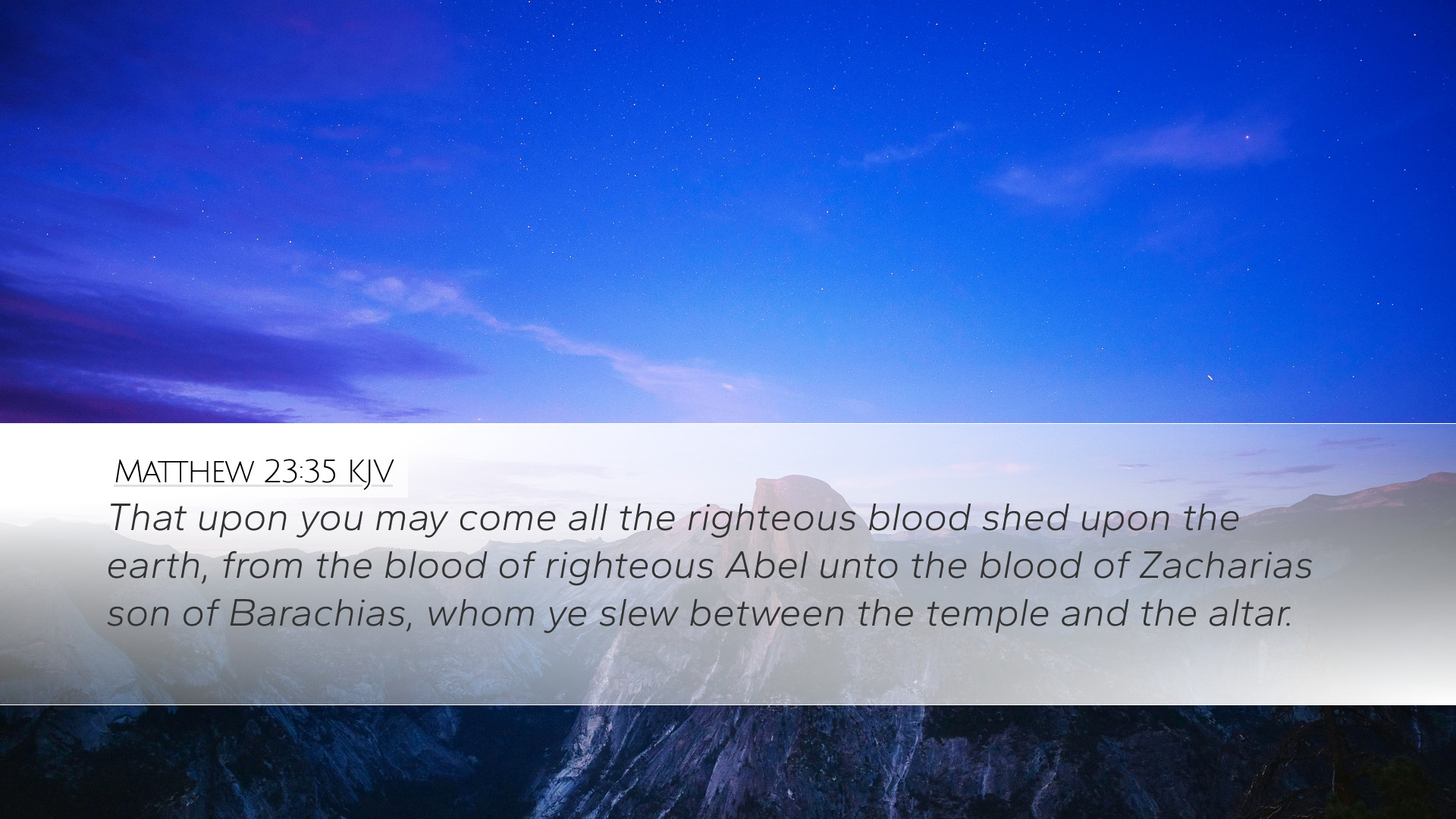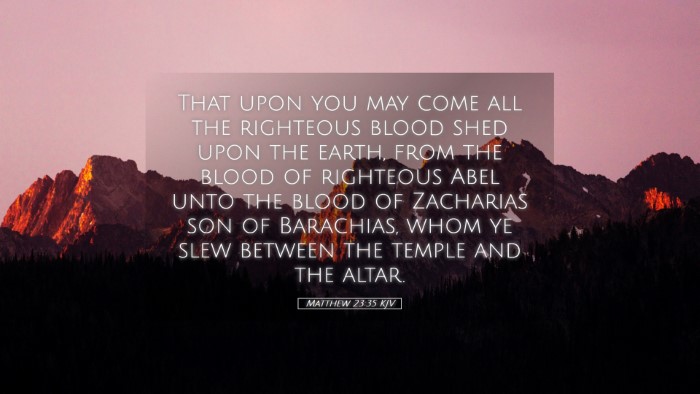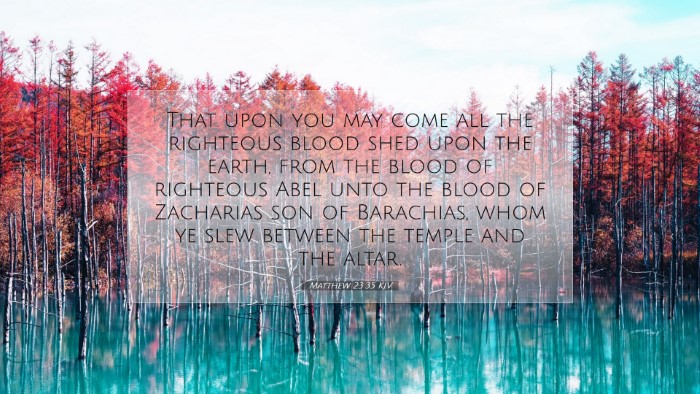Commentary on Matthew 23:35
Verse Reference: Matthew 23:35 - "That upon you may come all the righteous blood shed upon the earth, from the blood of righteous Abel unto the blood of Zacharias son of Barachias, whom ye slew between the temple and the altar."
Introduction
This verse is part of a larger discourse where Jesus is lamenting over Jerusalem and the state of its religious leaders. Matthew 23 contains a series of pronouncements of woe upon the scribes and Pharisees, highlighting their hypocrisy and the heavy burden they place on the people. In this particular verse, Jesus links the rejection of the prophets throughout history to the impending judgment that would come upon those who continue to reject God's messengers.
The Context of the Verse
Jesus, throughout the chapter, addresses the Pharisees and exposes their legalism and lack of true piety. He draws upon Israel's history, illustrating a pattern of violence towards God's prophets. This setting provides a crucial understanding for interpreting Matthew 23:35.
Commentary Insights
Matthew Henry
Matthew Henry observes that the mention of Abel is significant as he was the first martyr for righteousness recorded in Scripture. Abel’s death represents the beginning of a long history of righteous suffering at the hands of the wicked. The progression from Abel to Zechariah illustrates a continuum of violence against God's messengers. Henry emphasizes that the judgment that is to come upon the religious leaders is a result of their persistent rejection of divine truth and their part in this legacy of bloodshed.
Albert Barnes
Barnes elaborates on the righteous blood mentioned in the text, suggesting that it symbolizes the cumulative guilt of sin committed by the Jewish leaders. He highlights that the term 'righteous blood' encompasses those who have been killed for their righteousness, thereby condemning the Pharisees for their complicity in such injustices. Barnes also notes that the inclusion of 'the blood of Zacharias' connects the Old Testament examples of violence with the contemporary responsibility of the Pharisees, demonstrating that they embody a continuation of Israel's historical failures.
Adam Clarke
Clarke comments on the specific mention of Zacharias, whose death took place in the temple precinct. This act of violence, occurring in such a sacred place, underlines the severity of the transgressions committed by the leaders of the time. Clarke observes that this verse serves as a prophetic warning about the extent of accountability that will weigh upon the leaders for the blood they have shed through their rejection of the prophets sent by God. The reference to innocent blood both condemns and foreshadows the judgment that will follow.
Theological Implications
This verse reveals profound theological insights about the nature of sin, judgment, and prophetic witness. It signifies the continuity of prophetic rejection throughout Israel's history and the consequent judgment awaiting those who fail to heed God's call. The connection between the blood of Abel and the blood of Zechariah serves to remind the audience that the consequences of sin are serious and far-reaching.
- Continuity of Rejection: Throughout biblical history, there has been a troubling pattern of rejecting God's messengers. The mention of Abel and Zechariah serves to illustrate this continuity.
- Accountability for Leadership: Leaders, especially within the church, bear great responsibility for their actions and the influence they wield over the congregation. This passage serves as a warning to contemporary church leaders.
- The Severity of Judgment: The reference to bloodshed indicates that there is a divine justice that will ultimately be enacted. Those who cause the innocent to suffer are held accountable before God.
Practical Applications
- For Pastors: This passage serves as a solemn reminder of the weight of responsibility that comes with spiritual leadership. Pastors are called to faithfully shepherd their flocks, avoid hypocrisy, and resist the temptations of moral compromise.
- For Students of Theology: The historical context of Matthew 23:35 provides a rich area for study, particularly in examining the relationship between the Old and New Testaments regarding prophecy and persecution.
- For Bible Scholars: A critical analysis of this verse may lead to discussions concerning the way early Christian communities understood their relationship with the Jewish authorities and how they enacted the prophetic tradition within their own context.
Conclusion
Matthew 23:35 serves as a powerful and poignant message against the backdrop of prophetic witness and the consequences of unrepentant sin. While it reflects on the past, it also resonates with contemporary implications for faith leadership and community integrity. The connections made between Abel and Zechariah provide essential insights into understanding God’s justice and the serious reality of spiritual accountability. As we reflect on this text, may we be inspired to heed God's call to righteousness and remain vigilant against the traps of hypocrisy and disregard for His messengers.


